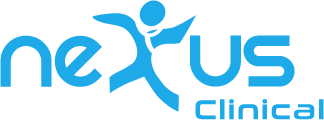
13 Essential Features to Look for in EHR Solution
- Salient points for switching from paper charts to EHR
13 Essential Features to Look for in EHR Solution
- Salient points for switching from paper charts to EHR

When it comes to managing electronic medical records (EMR), finding the right EHR system is key. With so many options available, it can be overwhelming to determine which features are essential and which ones are not necessary. In this article, we will discuss the essential features to look for in an EHR solution, with a focus on Ambulatory Practice workflow.
User-Friendly Interface
One of the most important features of an EHR solution is a user-friendly interface. A complicated and difficult-to-use interface can lead to significant inefficiencies and errors. Ensure that the software you choose has an intuitive interface that is easy to navigate.
Customization Options
Every healthcare practice is unique, and thus, requires a customized EMR solution. An ideal EMR software should offer customization options that allow healthcare providers to personalize the system to suit their specific needs. This includes customizing charting templates, forms, workflows, and alerts.
Reliable & Responsive Support
An often-overlooked aspect of EHR solutions is the quality of customer support provided by the vendor. Reliable and responsive support is a must to ensure that any technical issues or questions are promptly addressed, minimizing disruptions to your practice.
A good EHR solution should offer multiple channels for support, such as phone, email, and live chat, along with a comprehensive knowledge base and training materials. By choosing an EHR system with responsive and knowledgeable support, you can ensure a smooth implementation and ongoing success in your practice.
Integration with Other Systems
An EHR system that can integrate with other systems is highly beneficial. The ability to seamlessly share patient data between different systems, including laboratory and imaging systems, pharmacies, eFax, and Practice management software, can streamline care and improve efficiency.
Security Features
The security of patient data is of utmost importance in any EHR solution. So, look for an EMR solution that offers robust security measures, including role-based access control, user activity log, HIPAA compliance, etc.
Mobile Access
With the increasing use of mobile devices in healthcare, having an EMR system with mobile access can be highly beneficial. This allows healthcare providers to access patient data on-the-go and improves the overall efficiency of care.
Appointment Reminders
Appointment reminders are an essential feature of EHR systems, reducing the likelihood of no-shows. So, the system should automatically send appointment reminders via email or SMS, reducing administrative work and improving patient adherence.
eFax
The ability to send and receive faxes electronically is a critical feature for healthcare practices. An EHR system with eFax capabilities allows easy and secure sharing of patient data between practices, improving coordination of care.
So, eFax capability of EHR makes it really easy to send referrals with a click of a button and safe staff time from manually sending faxes via machine.
Telehealth
With the increasing need for remote consultations, telehealth has become a must-have feature in EHR systems. Telehealth functionality allows healthcare providers to conduct virtual consultations, improving access to care and reducing the need for in-person visits.
E-Prescribing
E-prescribing enables healthcare providers to send prescriptions electronically to pharmacies, eliminating the need for handwritten prescriptions. So, this feature reduces errors and increases efficiency, providing timely access to medications for patients.
Lab Ordering
An EHR system with integrated lab ordering simplifies the process of ordering lab tests and receiving results. Thus, this feature improves efficiency, reducing errors and delays in the testing process.
Billing/Claim Management
The billing and claim management feature in an EMR system automates the billing process, reducing errors and improving revenue cycle management. This feature streamlines the payment process, accelerating revenue collection, and improving cash flow.
Reporting and Analytics
Reporting and analytics capabilities in an EHR system can help providers to monitor patient outcomes and identify areas for improvement in care delivery.
Conclusion
When choosing an EHR solution, it is essential to consider the features that are most important for your healthcare practice. Moreover, a user-friendly interface, customization options, integration with other systems, security features, clinical decision support, and mobile access. Also, reporting and analytics capabilities are all critical elements to look for in an EMR system.
By selecting an EMR solutions with these features, healthcare providers can improve the quality of care, streamline workflows, and ultimately, enhance patient outcomes.
Nexus EHR is a comprehensive EHR solution that includes all the essential features discussed in this article and more, providing healthcare providers with an integrated and streamlined solution.





